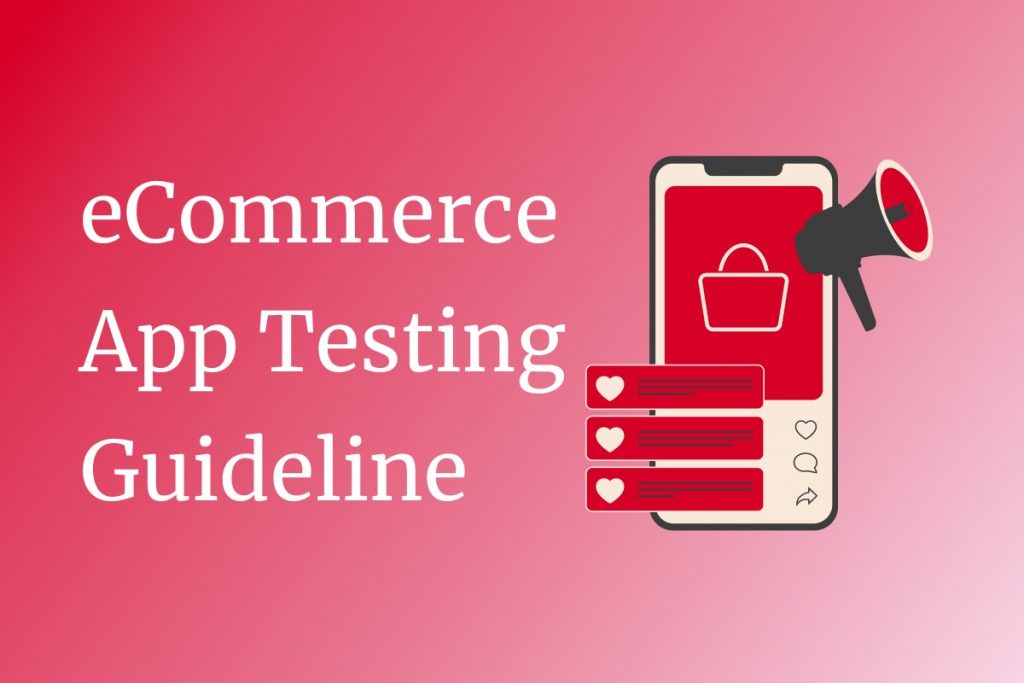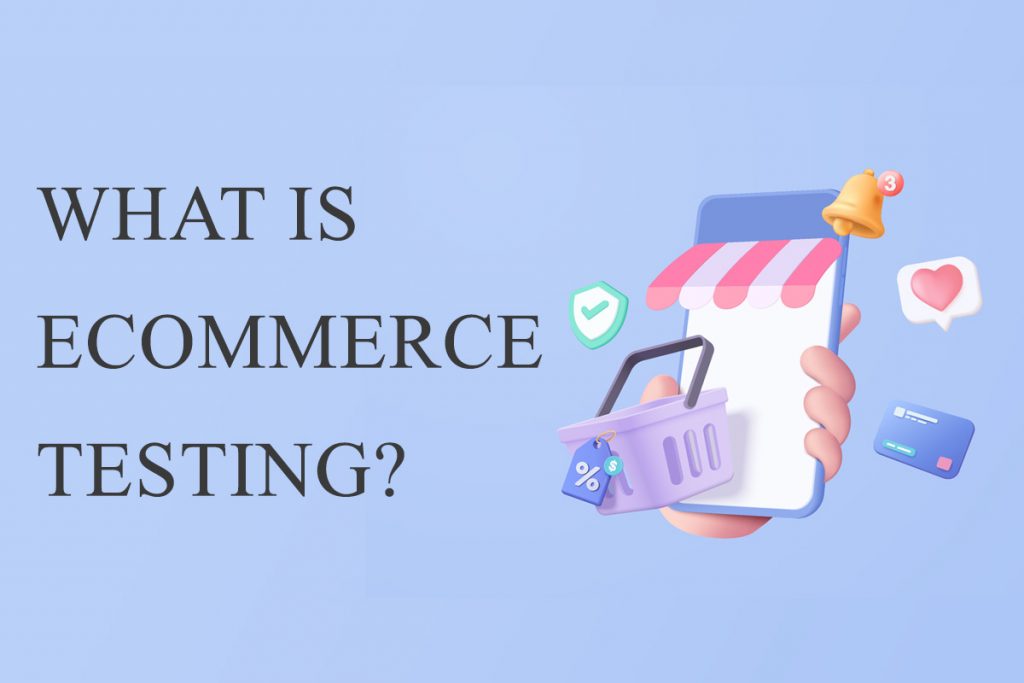Building a mobile eCommerce solution is just a step in the right direction of getting your e-business running. The final touch on getting that platform consistently delivers outstanding performance and zero-frustration experience requires vigorous testing toward its release as well as regular testing throughout its lifecycle. It might sound effortless to say it, but the actual testing work put into these processes is horrendous to any business if they do not have a systematic testing protocol in place.
In this blog, we’ll be exploring the essential types of testing that can help you guarantee that your mobile eCommerce platform performs somewhat flawlessly, as perfection doesn’t seem to exist. From compatibility across devices to optimizing performance and safeguarding against cybersecurity threats, each test serves its irreplaceable purpose: to unlock the full potential of your mobile commerce solutions.
Functional Testing – the key to a fully functional application
Functional tests determine whether or not all the critical app components, such as main and description pages, product categories, shopping carts, search functions, filtering options, and sorting mechanisms, are working properly as they were primarily assigned. In short, it would involve all the testing surrounding the software / eCommerce mobile app functionality, not the code itself, before it enters the market. Mainly focusing on a smooth user journey can lead to increased customer satisfaction, conversion rates, and overall business success.
Key functionalities scrutinized under functional testing:
Product browsing and discovery:
Product categories and subcategories: Product categories must be accurately organized, enabling users to navigate and discover desired items effortlessly.
Search functionality: The search function accurately filters and displays relevant products based on user input, ensuring users can quickly find what they’re looking for.
Filtering options: Filtering options are effective and responsive, allowing users to refine their search based on specific criteria such as price, brand, color, or size.
Sorting mechanisms: Sorting mechanisms function correctly, enabling users to organize product listings based on parameters like popularity, price, or average rating.
Product information and presentation:
Product pages: The product pages display accurate and comprehensive product information, including high-quality images, detailed descriptions, specifications, and customer reviews.
Related products: Related product recommendations are relevant and personalized, enhancing the user’s shopping experience.
Shopping cart and checkout process:
Shopping cart: Ensure the shopping cart accurately reflects added items, quantities, and pricing. Verify that items can be added, removed, and updated without issues.
Checkout process: Validate that the checkout process is streamlined, secure, and user-friendly, minimizing friction and maximizing conversion rates.
Payment gateways: Check whether or not the payment gateways are integrated seamlessly and securely, enabling users to complete their purchases confidently.
Performance testing to ease congestion
Research from 2020 shows that a staggering 90% of website visitors abandoned sites that were too slow to load, and the same holds true for mobile applications.
Today, consumers expect fast-loading pages, instant display of images, and smooth operation even during peak traffic times like Black Friday. Failing to meet these expectations could lead to 57% of users opting to shop with your competitors instead.
To address these issues, performance testing serves several purposes:
- Evaluating how well the system handles its intended load.
- Testing the platform’s behavior under extreme conditions.
- Assessing the software’s performance across different network environments, such as 3G, 4G, or Wi-Fi.
- Measuring response times for various actions like page loads, search queries, and checkout processes.
- Gauging the app’s ability to manage multiple users engaging in simultaneous actions.
Consistent App Experience through Compatibility Testing
Customers today navigate the eCommerce landscape using a diverse array of mobile devices. Each device boasts unique screen sizes, operating systems, and processing capabilities, from iPhones and Android smartphones to tablets and wearables. This heterogeneity creates a challenge: ensuring your eCommerce platform delivers a flawless user experience regardless of the chosen access point.
So, how do you know your solutions work seamlessly across this diversity? That’s where compatibility testing steps in, enabling organizations to ensure that their app operates smoothly across various devices, browsers, operating systems, and combinations. Compatibility testing identifies and rectifies any potential glitches or inconsistencies by simulating real-world user interactions on these diverse platforms. Imagine a user attempting to checkout on a budget Android phone – compatibility testing verifies a smooth experience, preventing frustration and potential cart abandonment.
Through comprehensive compatibility testing, you can achieve:
- Universal accessibility: Guarantee your platform is reachable and functional for a broader user base, maximizing your potential customer reach.
- Consistent user experience: Deliver a seamless and frustration-free experience across all devices, fostering user satisfaction and brand loyalty.
- Reduced development costs: Identifying and rectifying compatibility issues early on in the development process minimizes the need for costly rework later.
In essence, compatibility testing empowers you to bridge the gap between your eCommerce platform and the multitude of devices users employ. This translates to a broader audience reach, a more satisfied customer base, and a thriving eCommerce business.
Cybersecurity testing to prevent data breaches
It’s no wonder 73% of interviewed eCommerce companies see cyber security as a significant business hurdle. Take this example, for instance.
In 2022, cybercriminals hacked into SHEIN’s payment systems, an online fast-fashion retailer, and illegally obtained credit card details from 39 million customers, which they then put up for sale on the dark web. The consequence? The brand’s owner was slapped with a hefty $1.9 million fine.
Online stores store vast amounts of private information about users, including home and work addresses, credit and debit card details, and purchase histories. A single breach can lead to catastrophic outcomes.
Implementing cybersecurity testing is crucial for pinpointing vulnerabilities within the app and ensuring that all sensitive data remains well-protected against theft or unauthorized access.
Integration Testing for Seamless Software Component Integration
When it comes to mobile eCommerce, there’s a complex network of components at play: payment gateways, customer databases, inventory management, order tracking, third-party APIs, CRM, and CMS systems. To maintain smooth operation and accurate data transfer among these components, we recommend prioritizing integration testing. This approach helps to minimize transaction failures and costly breakdowns during production. It’s especially crucial if your aim is to encourage repeat visits and purchases.
Improving User Experience via Usability Testing
Nobody wants to waste hours searching for what they want because of a clunky search function. A user-friendly interface and easy navigation are crucial to keep customers interested and boost sales. By prioritizing a smooth user experience, businesses can make sure their customers find what they need quickly and complete their purchases effortlessly. Usability testing helps achieve this by identifying and fixing pain points like confusing layouts, complicated checkout processes, and unclear product descriptions.
Automating Tests for Faster Software Deployment
In the fast-paced world of online shopping, every moment counts, and it can make the difference between a sale and an abandoned cart. Frustrated customers encountering bugs or slow loading times are more likely to click away. This is where test automation comes in, offering a valuable tool to speed up QA processes and release cycles without sacrificing quality. Businesses can free up valuable QA resources by automating repetitive tests to focus on more strategic initiatives, like exploring new features and functionalities.
To maximize benefits, consider integrating test automation during:
- Regression testing: Ensuring that recent updates don’t disrupt existing features is crucial. Test automation verifies these core functionalities remain stable after each update.
- Performance testing: Simulate real-world scenarios with numerous simultaneous users and assess system performance under various loads. Test automation allows you to consistently push the limits and identify bottlenecks before they impact real customers.
- Compatibility testing: Confirm that the software functions smoothly across a wide range of device and mobile browser combinations. Automated testing across various platforms certifies a seamless experience for all your customers, regardless of their device.
In summary
This blog generalized the process of the customer purchasing journey from their first initial click to the ultimate purchase at the end process. It provided helpful core tips on how to make this eCommerce experience a much smoother process.
Ultimately, the key criteria that matter are your business’s core product features and quality to set your products apart from the competitive marketplace, where customers have endless similar product choices and strict, standardized product requirements.
ContactContact
Stay in touch with Us





